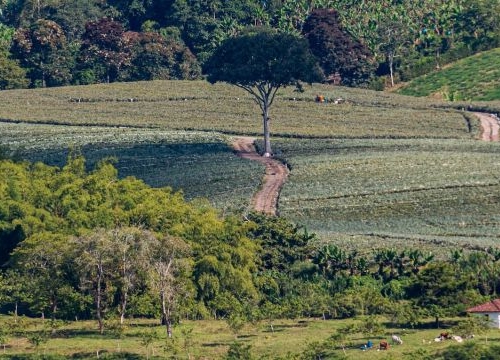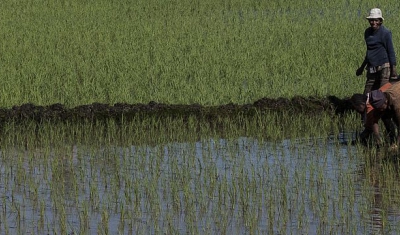Progress and challenges in the implementation of the UN Declaration on the Rights of Peasants in Colombia
Event


Alejandro Ortiz, Unsplash
In Colombia, the United Nations Declaration of the Rights of Peasants (UNDROP) has given impetus to various initiatives for the recognition of peasants, including in the framework of the implementation of the Peace Agreement with the former FARC- EP guerrilla, in which one of the central issues was the Comprehensive Rural Reform and the implementation of a System for the Progressive Guarantee of the Human Right to Food.
Six years after the signing of the Peace Agreements, the results are not very encouraging, with a country sinking into hunger. According to our analysis, this situation was exacerbated by the absence of political will and the lack of recognition of the problem and its challenges by the outgoing government. The absence of legal recognition of the peasantry, its criminalisation and the strong conditions of inequality it faces have also been identified as causes of the situation (DANE, 2020).
After the new presidential elections, Colombia witnessed a political turnaround. The new government has announced as a central commitment the fulfilment of the Peace Accord, as evidenced in its Government Programme ‘Colombia, a world power for life’. Likewise, the government has expressed its adherence to UNDROP and has committed itself to the recognition of hunger as a strategic issue for the country. The new government has expressed its intention to recognise the peasantry as a central political subject for the care of life. The majority of the population urgently expects important advances, including the recognition of peasants as a subject of special protection and the implementation of policies and laws that aim to guarantee the rights to adequate food and nutrition and to food sovereignty.
During this event co-organized with FIAN International and FIAN Colombia, testimonies from two peasant communities, located in the South of Bolivar and in the North of Cauca, will be presented, telling us about their struggle for peasant rights, including their right to adequate food and nutrition. FIAN Colombia will present elements of analysis in view of the consolidation of a strategy that advances the guarantee of peasant rights, peace, and especially the rights to adequate food and nutrition and to food sovereignty in the new Colombian political context and in light of the UNDROP. We will have time to talk with the participants.
Moderation
- Christophe Golay, Senior Research Fellow, Geneva Academy
Panelists
- Deyanira Gonzalias, Representative of the Northern Cauca Communities of Villa Rica and Guachene
- José Mendoza, APADECOR Community Representative, South of Bolivar
- Paola Romero, Gender Programme and Project Coordinator, FIAN Colombia
- Juan Carlos Morales González, Executive Director, FIAN Colombia





